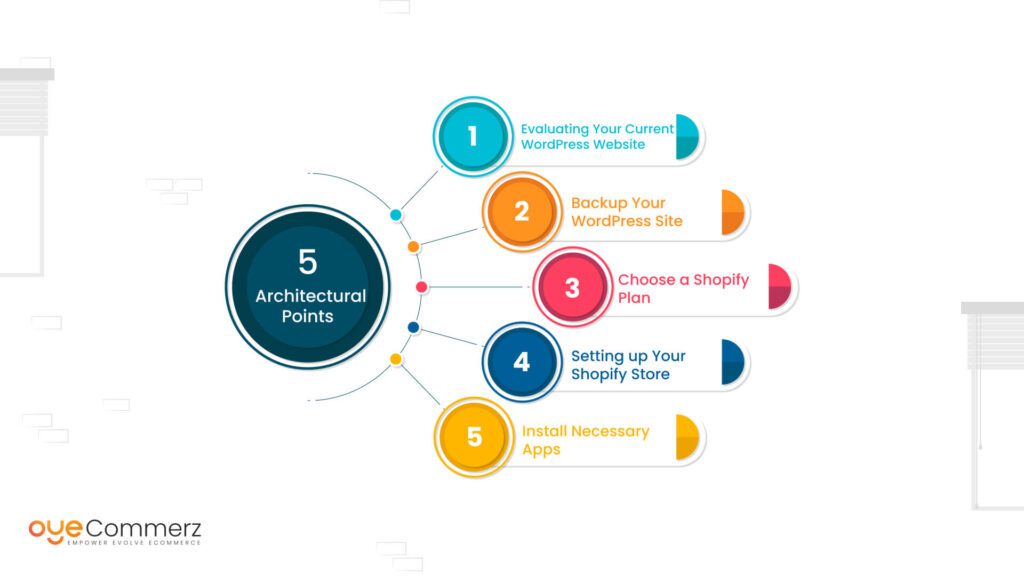In the constantly changing world of digital commerce, picking the best system is essential for your company’s growth. If you’re presently using WordPress and considering a migration to Shopify, you’re not the only one. Countless businesses are switching to take advantage of Shopify’s powerful features, ease of use, and growth potential. This guide will guide you on the journey of migrating from WordPress to Shopify seamlessly, guaranteeing that you achieve your eCommerce potential.
Why Migrate from WP to this platform?
Prior to starting the migration process, it’s essential to realize why this change can be advantageous for your eCommerce business:
Intuitive Design: Shopify offers an straightforward system that streamlines store management, making it easier for non-technical users.
Flexibility: As your company grows, Shopify can support greater traffic and transactions without affecting performance.
Integrated Features: Shopify provides integrated tools for search engine optimization, analytics, payment handling, and more, minimizing the necessity for multiple plugins.
Advanced Safeguards: With Shopify, you get access to robust security protocols that safeguard critical customer information.
Steps for a Seamless Migration
Migrating your eCommerce site from WordPress to Shopify includes multiple steps.
Here’s the way to facilitate a successful transition:
Plan Your Migration Plan
Start by mapping out your migration strategy. Decide on which aspects of your current site you wish to transfer, such as:
Item details
Client data
Order history
Posts
Choose the Appropriate Migration Solution
Based on your requirements, opt for a migration plan that aligns with your store. Professional services offers multiple options:
Basic Migration Package: Suitable for small stores with limited products.
Regular Option: Suitable for mid-range businesses with moderate demands.
Comprehensive Solution: Excellent for big stores Shopify advanced customization demanding extensive customization.
Save Your Data
Before beginning the migration, guarantee that you have a complete copy of your WordPress site. This step is critical in case anything goes off track during the transfer.
Extract Your Data from WordPress
Use extensions or alternative solutions to export critical information from your WP site:
Inventory
Users
Transactions
Articles
Upload Data into Shopify
Once you have your information retrieved, employ Shopify’s migration apps or external apps to migrate your data into your Shopify store. Verify that all data is correctly structured and aligned.
Personalize Your Shopify Platform
Once migrating data, tailor your Shopify platform’s layout to reflect with your brand identity. Look into hiring a developer if you require complex customization.
Establish Payment Gateways and Logistics
Set up billing solutions and shipping settings in Shopify to ensure a smooth purchase experience for customers.
Adopt Search Engine Optimization Guidelines
To keep your search engine rankings during the Shopify marketing strategies transition:
Set up 301 redirects from old URLs to new ones.
Update descriptions.
Enhance media and text for search engines.
Review Your Updated Shop
Prior to launching, completely check your Shopify platform. Look out for any errors, transaction errors, or untransferred content.
Publish Your Site
Once everything is in place, it’s time to launch! Announce the transition to your users and invite them to discover the enhanced offerings of your Shopify store.
Post-Migration Assistance
Post publishing your updated store, ongoing support is key. Explore partnering with service providers who can guide with:
Troubleshooting
Promotional campaigns
Improvement strategies
Conclusion
Migrating from WordPress to Shopify can be a crucial decision for your online retail. By using this guide and leveraging tools like those offered by industry leaders, you can guarantee a effortless transition that enhances your online presence. Adapt to the shift and discover the full capabilities of Shopify today!
